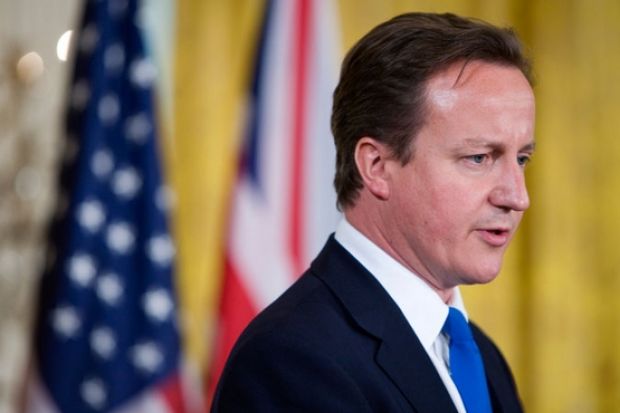Fears are growing about the effects of a sharp reduction in immigration on universities as the government prepares to announce cuts to student visas.
The Home Secretary, Theresa May, is this week expected to unveil details of the government’s strategy to reduce net migration by tens of thousands a year.
Last week, the Migration Advisory Committee said that up to 80 per cent of the reduction in net migration, which stood at about 196,000 cases last year, would have to be borne by students and family reunion cases.
The prediction was met with a chorus of protest from universities, which fear that the flow of students from outside the European Union will be affected, even if the government focuses its efforts on those studying on courses below degree level.
However, David Cameron insisted that it was “perfectly possible” to cut immigration, and indicated that he remained committed to more than halving overall numbers.
In an interview with Sky News yesterday, the Prime Minister said: “If you stand back and look at the big picture, actually immigration between Britain and the rest of the EU is pretty much in balance.
“It’s between Britain and the rest of the world where it’s got out of balance and we have this large level of net migration into the UK.
“That is partly economic migration. It’s also about large numbers of people coming to settle in the UK. It’s also about a lot of people abusing the student regime.
“So I think if you tackle all of those things it’s perfectly possible – it’s my ambition – to get net migration from the rest of the world coming down to the tens of thousands rather than the hundreds of thousands.”
In last week’s briefing, the Migration Advisory Committee also recommended that the government should reduce Tier 1 and Tier 2 visas for skilled workers by between 13 per cent and 25 per cent in 2011-12.
Universities UK warned against such a reduction, saying: “Our established competitors, together with developing higher education systems, are competing with us for academic talent. This competition is real and urgent and we simply cannot compete if our hands are tied by artificial migration limits.”
Register to continue
Why register?
- Registration is free and only takes a moment
- Once registered, you can read 3 articles a month
- Sign up for our newsletter
Subscribe
Or subscribe for unlimited access to:
- Unlimited access to news, views, insights & reviews
- Digital editions
- Digital access to THE’s university and college rankings analysis
Already registered or a current subscriber? Login
